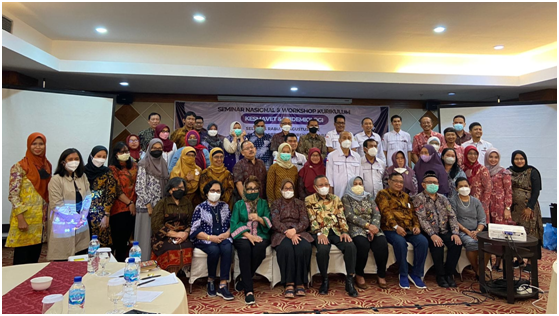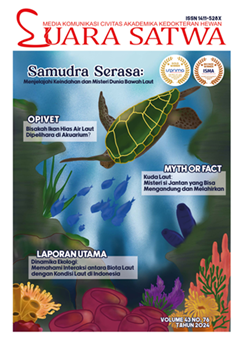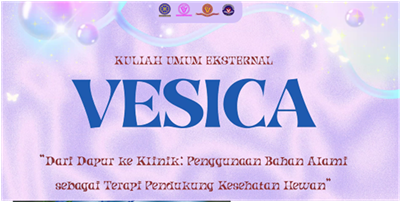National Seminar and Workshop Curriculum Veterinary Public Health and Epidemiology In Surabaya
On Tuesday (2/08), the Veterinary Public Health Laboratory, Faculty of Veterinary Medicine, Udayana University (VPH FVM UNUD) visited Surabaya to hold a National Seminar and Curriculum Workshop together with colleagues in the same field from each FVM throughout Indonesia. The event is held regularly once a year.
"This activity aims to equalize the perception of the veterinary public health curriculum nationally, in the form of materials, teaching, discussions, and collaboration between institutions. In the future, it is hoped that it can be used as a reference for other veterinary fields," said Prof. Dr. drh. Mirni Lamid, M.P. Dean of FVM Airlangga University as the host.
The event continued with material presentations and discussions delivered by several speakers, including: drh. Syamsul Ma'rif, M.Si (Director General of Veterinary Public Health, Ministry of Agriculture), Prof. Dr. dr. Bambang Sumiarto, SU, M.Sc. (VPH FVM UGM), Dr. Denny Wijaya Lukman, M.Sc. (VPH School of Veterinary Medicine and Biomedicine IPB), Dr. dr. A.T. Soelih Estoepangsti (VPH FVM UNAIR), and moderated by drh. Kadek Karang Agustina, M.P. (VPH FVM UNUD).

drh. Syamsul Ma'rif explained that the main tasks of Veterinary Public Health are as a liaison between animals and humans, preventing zoonoses and the resulting losses, guaranteeing the health quality and safety of food products of animal origin that are ASUH (Safe, Healthy Whole Halal), national food security, animal welfare (including disaster management, and the dangers of antimicrobial resistance (AMR). This is supported by Dr. Soelih's statement that prioritizes the importance of integrating one health into the concept of Veterinary Public Health. To realize this, according to Prof. Bambang and Dr. Denny, Veterinary Public Health must have a unified curriculum that Veterinary Public Health is faced with challenges in the future such as fighting for a veterinary education curriculum, forming professional veterinary competence, preparedness for zoonoses and transboundary diseases that have an impact on society, climate change and health, global health, safety of non-food animal products, and epidemiology molecular.
At the same time, meetings and coordination of deans/ representatives in the AIFVM forum (Association of the Indonesian Faculty of Veterinary Medicine) were also held to discuss the realization of the results of national seminars and curricula workshops on Veterinary Public Health and Epidemiology.

The activities of the National Seminar and Workshop on the Veterinary Health and Epidemiology Curriculum were conducive and smooth. Monitoring and evaluation will be carried out regularly and a similar event will be held at the Nusa Cendana University FVM next year.
Author: Romy




UDAYANA UNIVERSITY